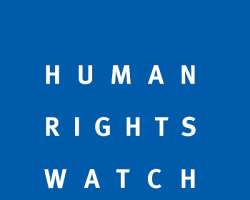Sudan: Soldiers, Militias Killing, Raping Civilians / Urgent Need for UN, AU Investigation in Blue Nile, Southern Kordofan

NAIROBI, Kenya, December 15, 2014/African Press Organization (APO)/ -- Sudanese government forces and allied militias are unlawfully killing and otherwise abusing civilians in government-held areas in Sudan's Blue Nile state, Human Rights Watch said today. Dozens of civilians who fled the government held areas and sought refuge in South Sudan described killings, rapes, and beatings to Human Rights Watch.
Accounts by refugees from Blue Nile who arrived recently in South Sudan and were interviewed by Human Rights Watch provide a rare glimpse into conditions of life under government control and point to clear patterns of abuse, including sexual violence.
“Entire communities are trapped in camp-like conditions behind government lines, terrorized by government forces,” said Daniel Bekele, Africa director at Human Rights Watch. “In addition to indiscriminate bombing, Sudanese government forces are getting away with abusive and illegal tactics under a guise of counterinsurgency, including rape, arbitrary detentions, and killings.”
Among the refugees Human Rights Watch interviewed, five said they were raped by members of government security forces or armed militia, and twelve said relatives had been raped. Some women said security forces detained them, then took them away and raped them. Refugees also reported being detained and subjected to ill-treatment and torture. Most of the reported incidents took place within the past year.
Since conflict erupted in Southern Kordofan and Blue Nile states in 2011, civilians living in the rebel-held areas of both states have borne the brunt of Sudan's indiscriminate aerial bombardments and ground attacks that have killed and maimed civilians and displaced hundreds of thousands of people. But there has been little information about conditions in government-held areas in both states as Sudan has not allowed human rights investigators access.
During a five-day research trip in November 2014, Human Rights Watch researchers interviewed 42 refugees in South Sudan's Maban County, and six internally displaced people inside Blue Nile state. The refugees, including 17 women and girls, had recently fled abusive treatment in government towns or villages.
The vast majority were Ingessana, the ethnic group of Malik Agar, the commander of the Sudan People's Liberation Army-North (SPLA-North), the main rebel group fighting the Sudanese government. The Ingessana appear to have been targeted because of their perceived support for the rebels. They had fled their homes during the night – in some cases leaving some children and family members behind – and walked more than 150 kilometers with little food or water to reach South Sudan, arriving in late October or early November.
Almost half of the refugees said they had experienced sexual violence themselves, have an immediate family member or neighbor who had, or had witnessed sexual assaults. Sexual violence occurred during home raids or house-to-house searches by security forces.
“They raped me one after the other and they beat me,” said Hawa, 20, who was raped by soldiers following her arrest at a market in the small town of Musfa earlier in 2014. “I tried to resist and they pulled me to the ground and [when they were finished] they left me.” She lost consciousness and was taken to the hospital in the state capital, Damazin, where she remained for 10 days, she said.
Several relatives of rape survivors said they were beaten up, threatened, or turned away when they tried to report the rapes to local authorities, police, or army officials.
“The number of rapes reported to us, often in harrowing detail, suggests that sexual violence is part of the government's counterinsurgency strategy,” Bekele said. “The scale of reported abuses points to the urgent need for an international investigation in both rebel- and government-controlled areas.”
Given the scope and persistent nature of the human rights and humanitarian law violations by government forces across Blue Nile and Southern Kordofan since 2011, the United Nations Security Council should immediately establish an international commission of inquiry and impose an arms embargo against the Sudanese government and individual sanctions against human rights violators from all parties. The African Union should support these steps or establish an inquiry of its own, Human Rights Watch said.
Many refugees said they or their relatives were beaten or detained, including when they tried to leave the government-controlled towns or villages. Some of the men who had been detained said that government authorities tried to force them to join the Sudanese army; several described severe beatings and torture by security forces. One 21-year-old farmer who was detained with 13 other men said two of them died from beatings in custody.
The refugees attributed most of the abuses to Sudanese forces, including its Rapid Support Force (RSF), a new security force under the command of Sudanese National Intelligence and Security Services. The RSF has carried out attacks on civilians in Darfur and Southern Kordofan over the last year. Many of the refugees also described rapes, killings, harassment, and cattle theft by a militia drawn from the Fellata – a nomadic ethnic group whose members the Sudanese government has recruited into auxiliary forces since conflict erupted in Blue Nile.
“Under Russian and Chinese pressure, the UN Security Council hasn't delivered on its threat of sanctions, and has left persecuted civilians across Blue Nile and Southern Kordofan to fend for themselves,” said Philippe Bolopion, United Nations director at Human Rights Watch. “The Security Council should wake up to the tragedy unfolding in South Kordofan and Blue Nile, verify the facts, and impose both an arms embargo on the government and targeted sanctions on individuals responsible for the abuses.”
